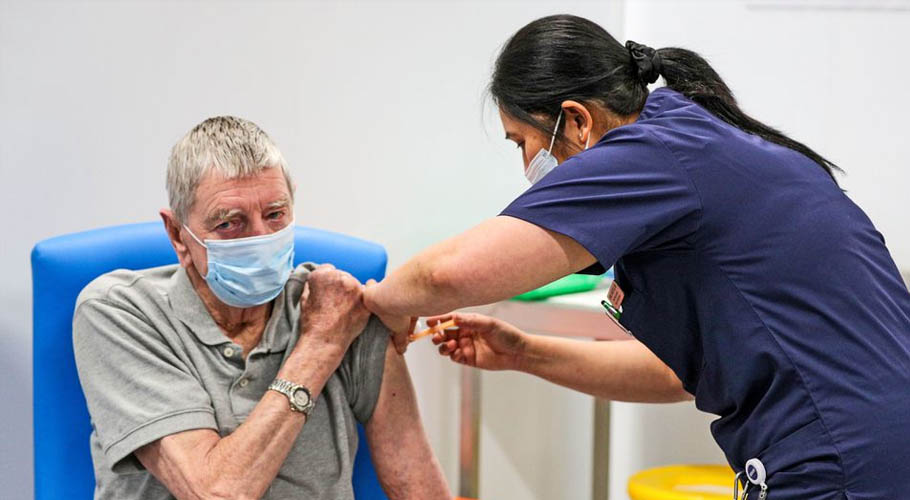NEW YORK: The number of COVID-19 jabs administered globally surpassed the one billion mark, even as the number of virus cases worldwide hit a new daily record mainly due to an explosion of infections in India.
At least 1,002,938,540 vaccine doses have been administered in 207 countries and territories. Nevertheless, the number of new infections topped 893,000 worldwide on Friday, a new daily record.
India accounted for more than a third of these, with authorities there announcing 346,786 new cases on Saturday, a record for a single country since the start of the pandemic.
The pandemic has now killed more than three million people worldwide since the outbreak emerged in China in December 2019. Hard-hit Brazil has seen its deadliest month yet of the virus with nearly 68,000 reported fatalities in April, even though there is still a week to go.
India reported 2,624 deaths, a daily record, on Saturday as a surge of cases has pushed the government to organise special trains to get oxygen supplies to worst-hit cities.
One “oxygen express” carrying 30,000 litres of oxygen arrived in northern Lucknow on Saturday, where armed guards were waiting to escort trucks to hospitals.
The Indian air force is also being used to transport oxygen tankers and other supplies around the country and to bring oxygen equipment from Singapore.
With the pandemic still showing no sign of slowing, governments around the world are placing their hopes in vaccines. The number of vaccine doses administered worldwide has doubled in less than a month.
Nevertheless, while the majority of poor countries have also started to vaccinate — mainly thanks to the Covax programme — inoculation is still largely a privilege of high-income countries, home to 16 percent of the world’s population, administering 47 percent of vaccine doses. By contrast, low-income countries account for just 0.2 percent of shots so far.
In the US, regulators have approved the re-start of a rollout of Johnson & Johnson vaccines halted over blood clotting concerns.
In Europe, Belgium said it would authorise the J&J shot for all adults, having already received 36,000 doses and expecting a total of 1.4 million between April and June. The European Union said it would have enough vaccines to immunise 70 percent of its adult population by the end of July.
The threat of the virus remains ever-present, with Germany implementing tougher new lockdown rules, including night curfews and school closures, after the government passed a disputed new law designed to slow infections.
The controversial new rules passed this week amid huge protests in Berlin will apply in all regions with incidence rates of more than 100 new infections per 100,000 people over the last seven days.
In Britain, ongoing restrictions are continuing to fuel anger. Britain began to gradually lift Covid-19 restrictions last month after months of curbs and a successful mass vaccination campaign.


































